Why women feel trapped right now (and how to find the way out)
The Dead End that's actually alive with possibility
We've pulled The Dead End card again.
This is probably the fourth or fifth time this particular archetype from Kim Krans' deck has shown up for us at Women are the Medicine: always at pivotal moments, always when we're sitting in ceremony, always when we're asking the biggest questions about where we're going and what we're here to do.
And every time it appears, there's that initial visceral response. That moment of "Are we doing this wrong? Are we the dead end? Should we just pack it in and admit defeat?"
But here's what we've slowly come to understand about The Dead End: it's not actually an ending at all.
It's the place where the old ways stop working so completely that new doorways can finally be seen.
The dead end we're all standing in
Let's be honest about where we are, collectively. As Nicola Jane Hobbs so perfectly captures it:
This is the Dead End. The impossibility of finding a way to breathe within systems that layer demand upon demand, expectation upon expectation, rule upon rule, until there's no space left for our actual humanity.
These aren't just societal pressures; they're patriarchal injunctions. Here are the seven deadly sins that Elise Loehnen shows us have been used for centuries to confine and restrict and control women:
Don't have needs or wants or desires (that's selfish and slutty)
Don't have appetite (that's gluttonous)
Don't be angry, don’t have boundaries (that's unbecomingly wrathful and witchy)
Don't rest, don’t sit still, don’t take it easy (that's lazy)
Don't take up space, don’t be seen, don’t have ambition (that's prideful)
Don't want more than what you’ve got (that's greedy)
Don't want what others have (that's toxic envy)
The patriarchal contract
To understand why this feels like such an impossible bind, we need to go back to the original deal. The patriarchal contract was formed thousands of years ago, when societies shifted from nomadic, earth-connected ways of living to settled, agricultural communities focused on accumulating wealth and power.
In this new system, it became essential to know who the father of a child was so that wealth and land could be passed down patrilineally. Women's reproductive power needed to be controlled and contained. But although the aim of patriarchy was control of reproduction, it actually limited ALL of women's powers of creativity unless they were confined to the domestic sphere.
So the contract was born: women would give away our life force energy, our libido (in the fullest sense: our creative power, our curiosity, our imagination, our ability to manifest ideas into reality), in exchange for protection and security within the house of a strong man, his family, his community.
We agreed to channel all our creative energy into very specific, contained roles: making a beautiful home, raising children, supporting our husband's ambitions, being decorative and pleasant and selfless. In return, we would be provided for, protected, given a place in society.
For centuries, this contract held. Women traded autonomy for security, creative freedom for safety.
The capitalist overlay
Then capitalism layered its own contract on top. The focus shifted from simply passing down family wealth to something more systematic: breeding and maintaining a workforce that would labour in mills and factories, generating wealth for those at the top of the pyramid.
The trade remained the same (women's autonomy for security) but the scale expanded. Now entire populations of women were expected to produce and nurture the workers that capitalism required, while remaining quietly supportive in the background.
For centuries, this dual contract held through a combination of carrot and stick. It delivered on its promises, but kept the reins tight: you had to keep working to keep your head above water. Women who followed the rules could expect genuine protection, financial security, and social belonging, but only as long as they stayed within the narrow boundaries of acceptable behaviour.
But capitalism began showing cracks early on, particularly for working-class women who found themselves labouring both inside and outside the home just to survive.
What we're witnessing now is the final breakdown. The system has extracted everything it can from the poor and is now systematically squeezing the middle classes. Wealth concentrates in fewer and fewer hands while more and more women find themselves working harder than ever before (often in multiple roles) just to maintain what their mothers could achieve with one.
You can see this capitalist system creaking and collapsing everywhere: in the trade wars and tariffs that make little economic sense, in the fantasy that we can somehow return to the "good old days" of controlled industrial labour. Western societies allowed China to function as their cheap factory for decades, only to wake up and realise China has been quietly building its own infrastructure and institutions while getting rich off the arrangement. The tariffs are punitive, a petulant child throwing a tantrum: "Wait, you were supposed to stay poor while making us richer. Give us our money back this instant!!"
There's a capitalist fantasy playing out right now about bringing back manufacturing, returning to an imagined golden age where workers laboured obediently in factories while the wealthy sat comfortably in their big houses and yachts.
The tragic irony is that this fantasy is being enacted by people who don't seem to understand the basics of how capitalism actually functions, so they're essentially shooting themselves (and us) in the foot.
The contract is broken
But here's what matters for women: whatever chaos these men create in their scramble to maintain control, it's just making the thorns and brambles of our Dead End more suffocating for us. We're still expected to keep our side of the deal while the system has completely failed to keep its side.
The system can no longer offer us the safety and protection it promised.
We're expected to keep our side of the deal (be selfless, make the home beautiful, raise the children, support everyone else's dreams) AND “lean in” by suiting up as mini-men in the workplace.
We're supposed to follow all the patriarchal injunctions about being small and quiet and selfless AND be good worker bees, because one salary isn't enough anymore.
We're supposed to be grateful for this "opportunity" to work double or triple shifts while our nervous systems scream for relief and the world burns around us.
The Dead End card says: "No more, child. You have reached the last page of this chapter."
And that can feel terrifying.
Or it can feel like the most liberating thing you've ever heard.
If you enjoy our work, will you buy us a pause?
It helps us keep making the kind of work that helps women stop, breathe, and remember who the hell they really are.
The lover's response to impossibility
The other card we drew alongside The Dead End was The Lover. According to Kim Krans' methodology, this represents the archetypal side of ourselves that needs attention in order for us to understand and move forward on our journey.
While The Dead End shows us that the old path is impassable, The Lover reminds us of something essential:
We are not passive recipients of whatever reality someone else has constructed for us.
The Lover, as Kim Krans describes, is full of creative libido - she "appreciates and experiences the world through the senses, reveling in beauty, song, art, music, scents, and sensuality." And to tap into this energy, we need to come out of our trance and become “fully present and awake, with no rules or expectations about what ‘should be’”.
In traditional Tarot, The Lovers card represents choices, relationships, and the need for alignment (particularly around love and partnerships). It signifies a crossroads where decisions need to be made, often involving commitment and potential sacrifices. But it's also a call for self-reflection on our own internal masculine and feminine energies.
This is exactly what The Dead End is offering us: a crossroads moment where we must choose between continuing to sacrifice ourselves to impossible demands, or tuning in fully to a different way of being.
This isn't just about romantic love.
This is about falling in love with possibility itself. With the process of creation. With the revolutionary act of choosing alignment with our own values rather than compliance with patriarchal demands.
When the door you planned to walk through disappears
The Dead End archetype tells us: "There are doors opening all around you, just not the one you planned on walking through."
This is where so many of us get stuck. We see the wall (the impossible contradictions, the demands that can't all be met, the way every single patriarchal injunction stacks up until we can't breathe) and we keep trying to break through it, instead of looking around for the other doors that are opening.
I think of the woman in our coaching programme who believes she needs more qualifications to deserve a break in the future. She's internalised the "don't rest" commandment so deeply that she's looking at the wall that says "work harder to earn permission to exist as you are" instead of seeing the door that says "rest is my birthright, and I can claim it right now."
Or the woman who apologises for taking up space in every call, who's absorbed "be small, be invisible" so completely that she can't see the door marked "your voice matters" or “it’s OK to have needs and desires of your own” or "your ideas are valuable exactly as they are."
Lover energy asks us all:
What if, instead of trying to follow impossible rules, we fell in love with imagining something better?
This is about more than just creative thinking. When we're really in Lover energy, we understand the power that women have: the power to imagine and create, to give birth to something new.
Consider how we can imagine sexual fantasy so vividly that our bodies respond and we reach orgasm through imagination alone. This demonstrates the extraordinary power of imagination to become real, to be felt in our bodies, to have tangible effects in reality. This is the essence of Lover energy, of desire, of female creativity and libido.
But it's hard to be in that state of expansion and imagination and creativity, because the current conditions of the world keep making us contract and feel fear: the fear of the Dead End, the fear that we're trapped, with no way out. It can be difficult to even get ourselves into a state of desire, to allow ourselves to think "What do I want my life to look like? How do I want things to be?"
This is especially challenging for women because the patriarchal injunctions insist that we should not have any appetite, should not desire anything, should be happy with what we've got. We automatically feel selfish and guilty for thinking about what we want for ourselves.
But if we don't start with our own body and our own desires for what we want to experience in our life, we miss the portal. That desire is how we give birth to a new world for ourselves and for others.
We can't just build it for others and keep working ourselves to death in the current system.
We can't labour in the old world whilst we give birth to a new one.
We have to be medicine for ourselves before we can be medicine for others and for the world.
Because if we can't do it for ourselves, we're not in alignment when we do it for others.
And this is why you have to start with yourself: your life and your work.
The life force energy we've been giving away
In traditional Tarot, The Lovers is a rite of passage, an initiation, a threshold.
This is when we get to grow up, leave our parents’ house, and choose for ourselves the future we are going to create: a choice based on what we truly value, what we're willing to commit our energy to, and how we want to align our internal energies.
The Dead End moment asks the same question: Now that you can see how impossible the contradictory demands of the patriarchal and capitalist contracts are, what do you actually want to pour your life into? What deserves your commitment and creativity?
Because here's what we've learned: every moment we spend trying to contort ourselves to meet patriarchal expectations (every workshop we take to become more "marketable," every strategy we implement to achieve impossible "balance," every time we apologise for having needs or wants or appetites) that's life force energy we're not using to create something better.
Our nervous systems are literally crying out for rest. And instead of listening, we've been trained to override the signals, to push through, to be productive despite exhaustion, to be selfless despite having nothing left to give.
This is the misalignment The Lovers card warns us about: when our external choices don't match our internal truth, when we're sacrificing to the wrong altar.
The revolutionary act of creation
The Dead End becomes The Lover's playground when we remember this:
Women all carry the archetypal power to create something from nothing.
This isn't about whether you've given birth to children. This is about the feminine principle that can take an idea, a vision, a wild dream and make it manifest in reality through love, attention, creativity, and yes: sensual engagement with the world.
The Lover doesn't just appreciate beauty; The Lover creates it.
The Lover doesn't just receive pleasure; The Lover cultivates it, tends it, shares it.
When we combine The Dead End's clear boundary ("this way is closed") with The Lover's creative force ("let's make something beautiful instead"), we become dangerous to systems that depend on our compliance.
The doors that are opening
So what are these doors that The Dead End promises are opening all around us?
They're not necessarily the doors we expected. They might look like:
Choosing rest as a radical act rather than something to be earned
Creating work that feeds your soul rather than just pays the bills
Building community and mutual aid networks instead of trying to "make it" alone
Honouring your cycles and rhythms instead of forcing productivity
Using your creative gifts to envision and build more equitable ways of living
Saying "you have no power over me" to systems that demand your compliance
These doors require us to trust our own creative power. They ask us to fall in love with the process of creation itself, rather than trying to guarantee specific outcomes.
From victim to creatrix
The Dead End archetype makes this clear: we can stay in the victim position, saying "there's nothing I can do, it's too big, it's too broken," or we can recognise that we're all at the dead end together and choose to build something new.
Lover energy gives us the fuel for that building. It reminds us that creation is inherently pleasurable, that bringing new realities into being through love and imagination and sensual engagement with life is our birthright.
This isn't toxic positivity or trying to pretend the systems aren't failing.
It's about recognising that their failure creates space – finally – for something better.
The choice point
If you’re old enough to remember the (very weird) film Labyrinth, the Bowie/Henson creation from 1986, you might recall the moment at the end where the Goblin King does a great job of standing in for patriarchy, and Sarah stands for women trying to come out of our collective trance and remember our lines.
Sarah is portrayed on the cusp of womanhood at 16: this is her initiation rite, the moment of The Lovers in Tarot where she declares "I will choose for myself, because I’m now an adult." And whether we’re 16 or 86, we all need to cross this threshold to move from powerless girls in a dying system, to powerful autonomous women building a new future.
The Goblin King makes his final seductive offer to Sarah: "Just fear me, love me, do as I say, and I will be your slave."
The logic is absurd: I'll be your slave if you willingly become mine first. It's the same contradictory nonsense as all patriarchal deal-making.
But Sarah finally wakes up, comes out of her daze, remembers her lines and her power, and responds:
This is The Lovers’ crossroads in its purest form: the moment when we must choose between continuing to sacrifice ourselves to systems that demand our compliance, or committing fully to our own alignment and truth.
"My will is as strong as yours and my kingdom as great. You have no power over me!"
No-one has power over what we do with our life force energy. But we have to commit to taking it back: and that commitment requires integrating our internal masculine and feminine energies, our drive and our receptivity, our power and our flow.
We can choose to keep giving our creative power to systems that are dying, or we can choose to fall in love with the process of building something better: something that honours our nervous systems, our needs, our appetites, our anger, our rest.
The Dead End says: that way is closed.
The Lovers says: choose what you love, imagine something beautiful, and commit to it fully.
The doors are opening all around us.
They're just not the doors we thought we'd be walking through.
If this resonates with you, we'd love to hear about the doors you're seeing open in your own life.
What are you choosing to create from this dead end moment?
What would it look like to fall in love with the process of building something entirely new?
Ready to step through those doors?
If you're feeling called to reclaim your life force energy and create something entirely new, we'd love to support you.
We work with women through our small group Mastermind and 1-2-1 coaching to help you navigate your own dead end moments and fall in love with your creative power. DM us or visit our site to explore working together.
We’re so much stronger together. Join us! 💃💃💃


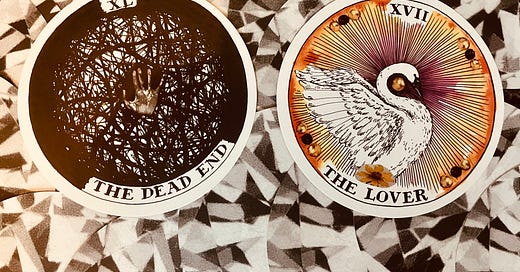



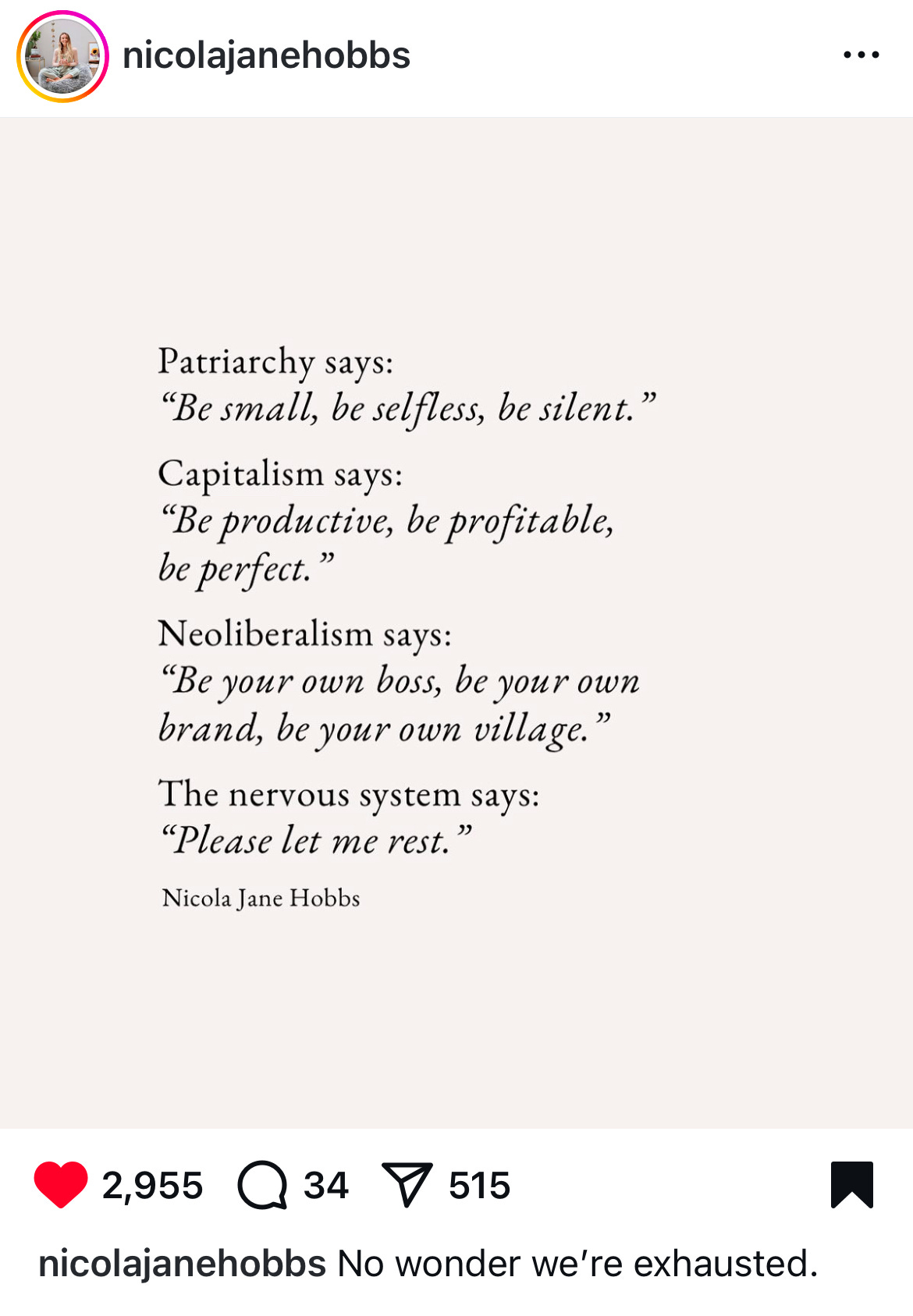
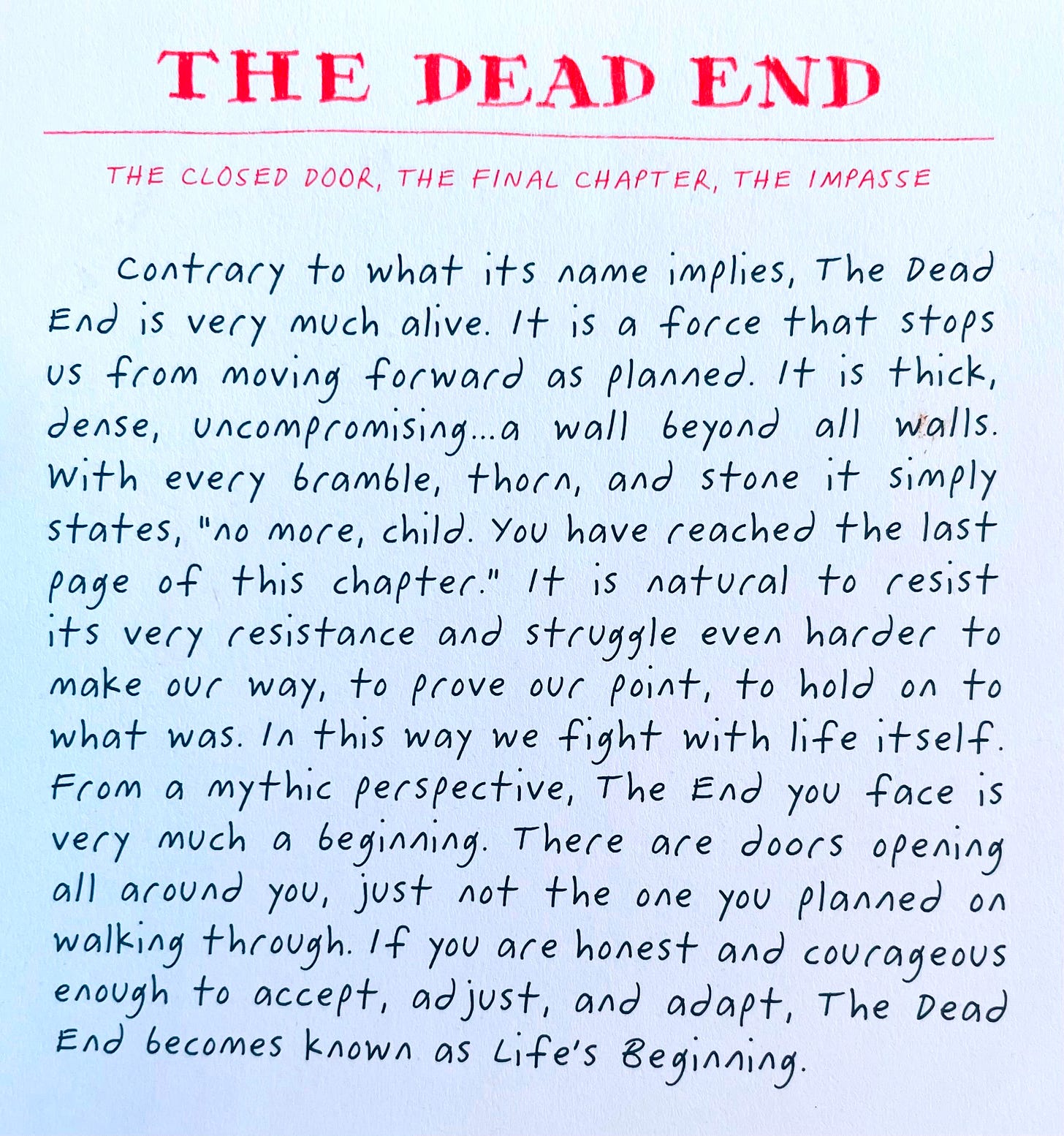
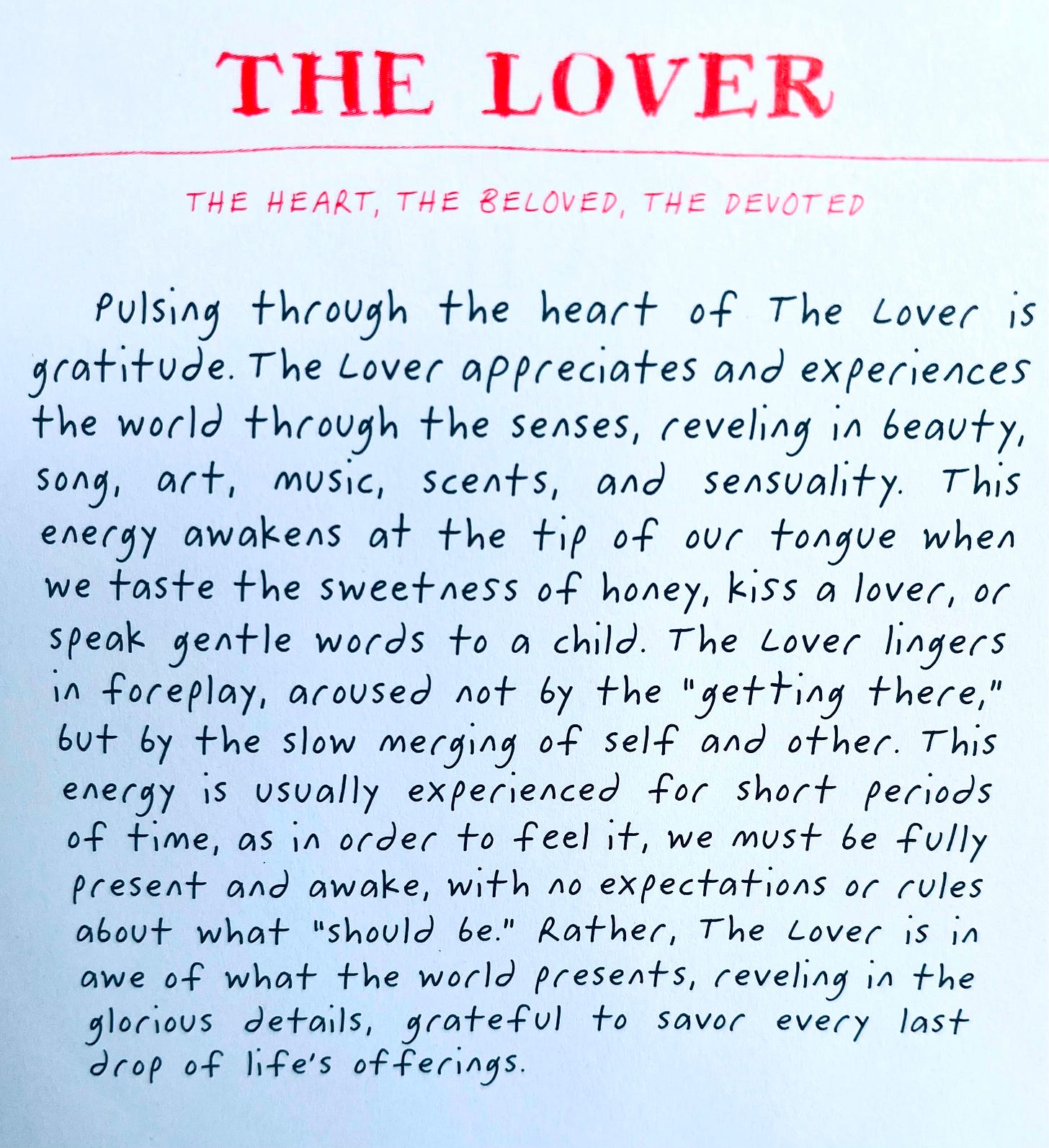
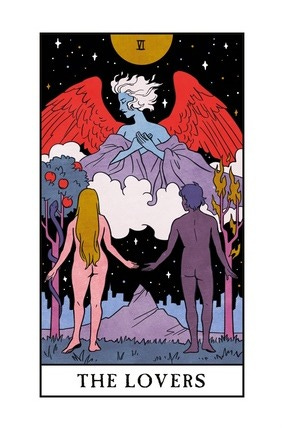

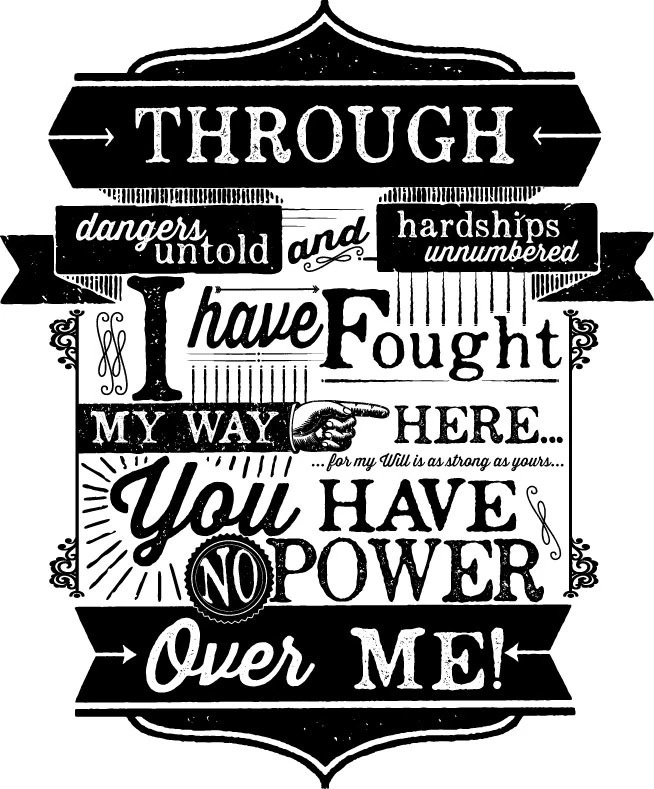
I loved this piece, Rachel! Patriarchy, capitalism, and neoliberalism are clearly teetering on some cataclysmic edge. I've worked to protect land, water, and ecosystems for decades, and in the face of the current assaults, I've been grappling with what the more beautiful story might be. This, in addition to questions of what the more beautiful story might be for all of us. While I seem to have found a relatively healthy personal balance--though not without some low-grade anger, grief, and anxiety related to all the awful forces you've outlined--the world is a big place and the assaults are nearly endless. The End and the birth of a new paradigm cannot come quickly enough.
So much to unlearn, so much to take in, to create our own lives, weaving it thread by thread in our own pace and terms. Reading this as I wake up from a nap, taken on a Saturday morning in the chaos of home, priorising rest over everything else, I feel that this is just the beginning of the journey back to me and freedom. As baby 2 is about to enter the world I am feeling a page is turning, one where I really start living truthfully instead of fitting in a mold that hurts and limits.